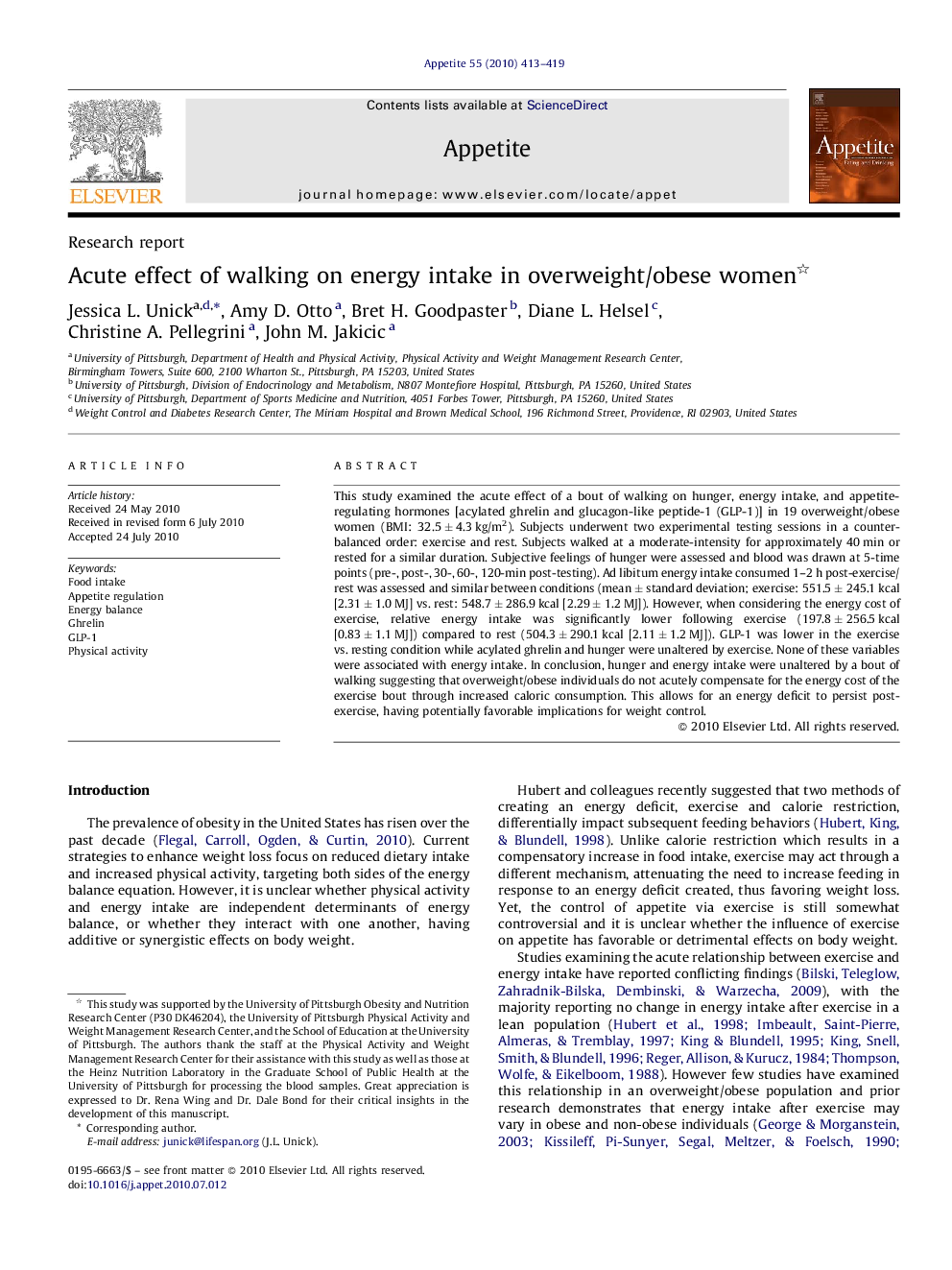| کد مقاله | کد نشریه | سال انتشار | مقاله انگلیسی | نسخه تمام متن |
|---|---|---|---|---|
| 940215 | 924885 | 2010 | 7 صفحه PDF | دانلود رایگان |

This study examined the acute effect of a bout of walking on hunger, energy intake, and appetite-regulating hormones [acylated ghrelin and glucagon-like peptide-1 (GLP-1)] in 19 overweight/obese women (BMI: 32.5 ± 4.3 kg/m2). Subjects underwent two experimental testing sessions in a counterbalanced order: exercise and rest. Subjects walked at a moderate-intensity for approximately 40 min or rested for a similar duration. Subjective feelings of hunger were assessed and blood was drawn at 5-time points (pre-, post-, 30-, 60-, 120-min post-testing). Ad libitum energy intake consumed 1–2 h post-exercise/rest was assessed and similar between conditions (mean ± standard deviation; exercise: 551.5 ± 245.1 kcal [2.31 ± 1.0 MJ] vs. rest: 548.7 ± 286.9 kcal [2.29 ± 1.2 MJ]). However, when considering the energy cost of exercise, relative energy intake was significantly lower following exercise (197.8 ± 256.5 kcal [0.83 ± 1.1 MJ]) compared to rest (504.3 ± 290.1 kcal [2.11 ± 1.2 MJ]). GLP-1 was lower in the exercise vs. resting condition while acylated ghrelin and hunger were unaltered by exercise. None of these variables were associated with energy intake. In conclusion, hunger and energy intake were unaltered by a bout of walking suggesting that overweight/obese individuals do not acutely compensate for the energy cost of the exercise bout through increased caloric consumption. This allows for an energy deficit to persist post-exercise, having potentially favorable implications for weight control.
Journal: Appetite - Volume 55, Issue 3, December 2010, Pages 413–419